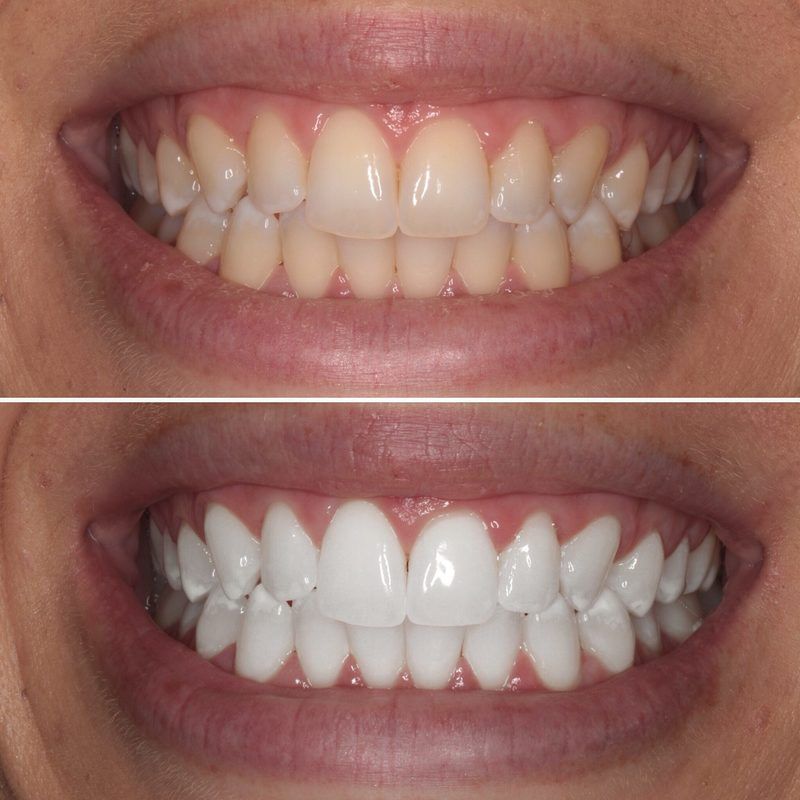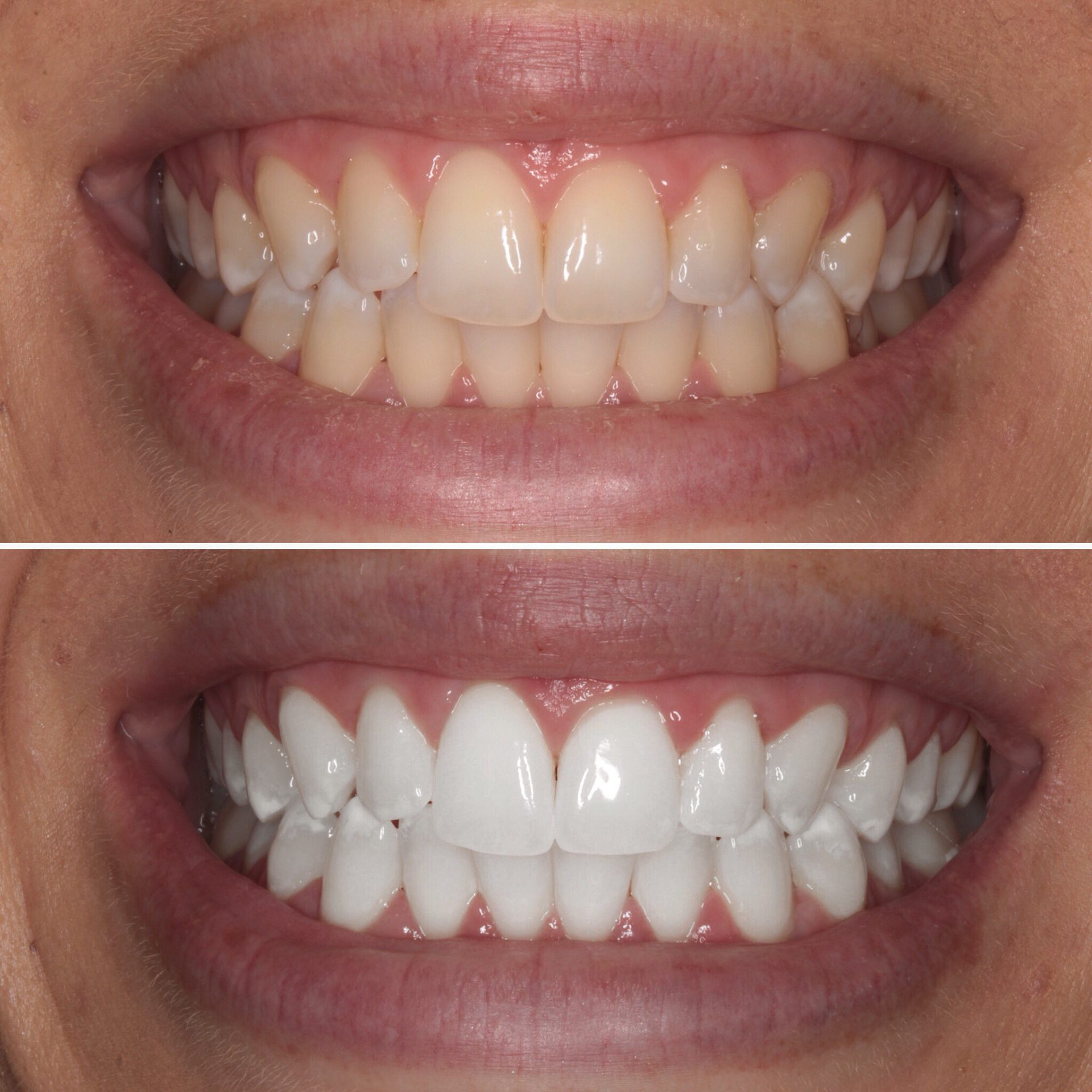
Teeth whitening is super popular these days, but some may wonder: Is teeth whitening safe? With dentists in Alpharetta, all cosmetic dental procedures are scientific and safe. You might’ve heard stories about sensitive teeth or messed-up enamel, right? So, it’s smart to know the risks before diving in. There are different ways to whiten teeth, like those DIY kits or going to the dentist. The pro treatments are usually safer because dentists watch closely and adjust things for you. Let’s chat about the safety of teeth whitening and figure out what’s best for you. Remember, a bright smile is awesome, but keeping your teeth healthy is super important too!

Is Teeth Whitening Safe?
Teeth whitening has become increasingly popular in recent years, with many people seeking a brighter, whiter smile. However, there are concerns about the safety of teeth whitening procedures. In this article, we will explore the question, “Is teeth whitening safe?” and delve into the potential risks and benefits associated with this cosmetic dental treatment.
The Process of Teeth Whitening
Teeth whitening typically involves the use of bleaching agents to remove stains and discoloration from the teeth. There are two main types of teeth whitening procedures: in-office whitening and at-home whitening.
In-office whitening is performed by a dental professional and involves the application of a highly concentrated whitening gel to the teeth. This gel is activated by a special light or laser, which helps to accelerate the whitening process. At-home whitening, on the other hand, involves the use of custom-fit trays filled with a lower concentration of whitening gel. These trays are worn for a specified period, usually a few hours each day or overnight.
Potential Risks of Teeth Whitening
While teeth whitening is generally considered safe, there are some potential risks and side effects that individuals should be aware of. One common side effect is tooth sensitivity, which can occur during or after the whitening process. This sensitivity is usually temporary and can be managed with desensitizing toothpaste or other oral care products.
Another potential risk is gum irritation or damage. If the whitening gel comes into contact with the gums, it can cause temporary inflammation or discomfort. It’s important to follow the instructions provided by your dentist or the whitening product manufacturer to minimize the risk of gum irritation.
Benefits of Teeth Whitening
- Enhanced Appearance: Teeth whitening offers a brighter, more attractive smile, boosting confidence and self-esteem by reducing self-consciousness about yellow or stained teeth.
- Stain Removal: It helps remove stains from foods and drinks like coffee, tea, and red wine, along with discoloration that comes with age, resulting in a younger and more vibrant look.
- Improved Oral Hygiene: Seeing positive whitening results motivates individuals to maintain good oral hygiene habits and attend regular dental check-ups, contributing to overall dental health.
How to Ensure the Safety of Teeth Whitening
To ensure the safety of teeth whitening procedures, it is important to seek professional guidance and follow the recommended guidelines. Here are some tips to help you safely whiten your teeth:
1. Consult with a dental professional: Before undergoing any teeth whitening treatment, it is essential to consult with your dentist. They will assess your oral health and determine if teeth whitening is suitable for you. They can also provide professional in-office whitening or recommend a safe at-home whitening kit.
2. Follow the instructions: Whether you choose an in-office or at-home whitening method, it is crucial to carefully follow the instructions provided by your dentist or the product manufacturer. Overusing or misusing whitening products can lead to tooth sensitivity and other oral health issues.
3. Choose reputable products: If you opt for at-home whitening, make sure to choose products from reputable brands. Look for products that have been approved by dental associations and have positive reviews from users. Avoid purchasing whitening products from unknown sources or without proper certifications.
4. Practice good oral hygiene: Teeth whitening should be accompanied by good oral hygiene practices. Brush your teeth at least twice a day, floss regularly, and visit your dentist for cleanings and check-ups. Maintaining a healthy oral care routine will help prolong the effects of whitening and ensure the overall health of your teeth and gums.
In conclusion, teeth whitening can be a safe and effective way to achieve a brighter, more attractive smile. While there are potential risks and side effects, following the guidance of dental professionals and using reputable products can help minimize these risks. By understanding the process and taking proper care of your oral health, you can safely enjoy the benefits of teeth whitening.
Key Takeaways: Is Teeth Whitening Safe?
- Teeth whitening is generally safe when done properly.
- It’s important to consult a dentist before trying any whitening treatment.
- Overuse of whitening products can damage tooth enamel.
- Sensitive teeth and gums may experience temporary discomfort after whitening.
- Following proper oral hygiene practices can help maintain whitened teeth.
Frequently Asked Questions
Teeth whitening is a popular cosmetic dental procedure that many people consider to enhance their smile. However, concerns about safety are often raised. Here are answers to some common questions regarding the safety of teeth whitening:
1. Does teeth whitening damage the enamel?
No, when done correctly, teeth whitening does not damage the enamel. The whitening products available today are designed to be safe for the teeth. However, excessive and improper use of teeth whitening products can lead to enamel erosion. It is important to follow the instructions provided by your dentist or the product manufacturer to ensure safe and effective results.
Additionally, it is recommended to consult with a dental professional before undergoing any teeth whitening procedure to ensure that your teeth and gums are healthy enough for the treatment.
2. Can teeth whitening cause tooth sensitivity?
Temporary tooth sensitivity is a common side effect of teeth whitening. The bleaching agents used in whitening products can penetrate the tooth enamel, which may cause sensitivity to hot or cold temperatures. However, this sensitivity is usually mild and subsides within a few days after the treatment.
If you experience severe or prolonged tooth sensitivity after teeth whitening, it is advisable to consult with your dentist. They may recommend desensitizing toothpaste or other remedies to alleviate the discomfort.
3. Are over-the-counter whitening kits safe?
Over-the-counter teeth whitening kits can be safe when used as directed. However, it is important to note that these kits may not be as effective or long-lasting as professional whitening treatments performed by a dentist. Additionally, some over-the-counter products may have higher concentrations of bleaching agents, which can increase the risk of tooth sensitivity or gum irritation.
If you choose to use an over-the-counter whitening kit, carefully read and follow the instructions, and discontinue use if you experience any adverse effects. It is always advisable to consult with a dental professional for personalized advice and guidance.
4. Can teeth whitening affect dental restorations?
Teeth whitening treatments generally do not affect dental restorations such as crowns, veneers, or fillings. However, it is important to note that the whitening agents used in the treatment do not change the color of these restorations. If you have dental restorations, it is recommended to consult with your dentist before undergoing any teeth whitening procedure to ensure that the results will be satisfactory.
In some cases, your dentist may suggest replacing or adjusting the dental restorations after teeth whitening to match the new shade of your natural teeth.
5. Are there any alternatives to teeth whitening for a brighter smile?
Yes, there are alternative options to teeth whitening for achieving a brighter smile. These include dental bonding, veneers, and crowns, which can improve the appearance of stained or discolored teeth. Additionally, maintaining good oral hygiene practices such as regular brushing, flossing, and professional dental cleanings can help prevent teeth discoloration and keep your smile looking bright.
If you are considering alternatives to teeth whitening, it is best to consult with a dental professional who can assess your specific needs and recommend the most suitable treatment option for you.
Is Teeth Whitening Destroying Your Tooth Enamel?
Final Summary: Are Teeth Whitening Procedures Safe?
Call or Book appointment online
:Ace Dental Care Alpharetta office: 678-562-1555 - Book Now
Ace Dental Care Norcross office: 770-806-1255 - Book Now
Disclaimer
This blog post was generated by artificial intelligence. The content of this post may not be accurate or complete, and should not be relied upon as a substitute for professional advice. If you have any questions about the content of this post, please contact us.
We are constantly working to improve the accuracy and quality of our AI-generated content. However, there may still be errors or inaccuracies. We apologize for any inconvenience this may cause.





